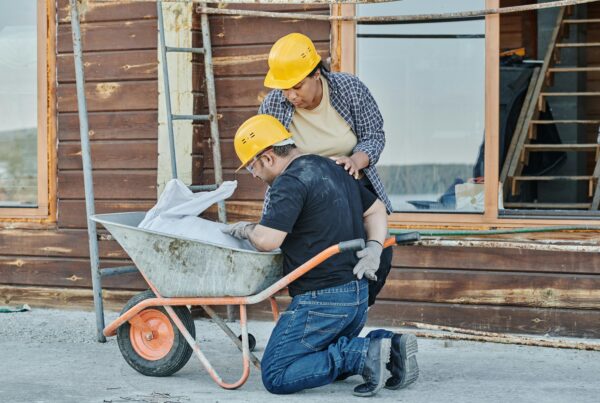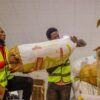As a trainer in the field of Manual Handling training, it is deceptively easy to reinforce the message that we are simply biological machines that need educating in the ‘reality’ of basic mechanics. Staff may have already been exposed to outmoded and prescriptive approaches to training which they know to be too simplistic to make any real practical sense.
How do we train our delegates effectively, without reinforcing an overtly mechanistic view that to some may seem positively Victorian – the world of pulleys and levers and steam-driven pistons?
Increasingly, studies reinforce the fact that biomechanics may only be part of the picture when looking at the causative factors for back pain. One study, published in 2000, followed a group of trainee nurses throughout the three years of their initial nursing training. The research found that, other than a history of lower back pain, the most consistent factor found to predict back pain onset was psychological distress.
As trainers this provides a challenge. Human beings and their behaviour is complex. How does our own training acknowledge this simple fact?
For many years now, health has been understood in terms of a combination of biological, psychological, and social factors rather than purely in biological terms – the so-called bio-psychosocial approach. A concept that is being used in fields as diverse as medicine, nursing, occupational therapy and physiotherapy as well as sociology, psychiatry and psychology.
Do these or similar mind-body models have anything to contribute to our manual handling training? Are there ways we can also invest in that ‘paradigm shift’ that is signalling change in so many other areas of healthcare?
We could of course start with simple human communication – a vital element in beginning to acknowledge and understand the many factors that contribute to the complexity of experience. Below are three basic communication reminders that may help change or challenge perspectives on your next manual handling course.
Listen:
As osteopaths or physiotherapists we are encouraged to listen to our patients. To allow them to tell their story. It may seem obvious but taking some time to listen to your delegates can pay valuable dividends. This is often essential in identifying attitudes or beliefs, both personal and/or occupational, which may be instrumental in creating a route to more effective training.
Remember though, it is a a two-way street. We also need to listen to feedback from staff. What attitudes and beliefs do we have to acknowledge that make our training more or less successful?
Positivity:
Gone are the days when we simply tried to scare people into best practice. In fact we may just end up reinforcing those fear-avoidance factors that help contribute to work-related absenteeism. Is fear really the most effective motivator? The back is one of the strongest parts of your body and activity is good for it. It is designed for movement. Adequate risk assessment combined with effective manual handling skills will reduce the risk of injury.
A positive message and simple reassurance is important.
Encouragement:
Encouragement can go a long way. Wagging the finger often doesn’t produce results. Some years ago a first-line manager, introducing a manual handling risk assessor to the staff, was overheard saying that the assessor was there to inform the company about whether the staff were doing their job properly (or not). Hardly the most encouraging of introductions!
Encouraging staff to report symptoms earlier, to help identify workplace hazards, or to make their own contribution to the risk assessments are all important aspects of effective MSD risk management but it is also important to encourage staff to invest in a more confident approach to their handling skills and problem-solving in the workplace.








